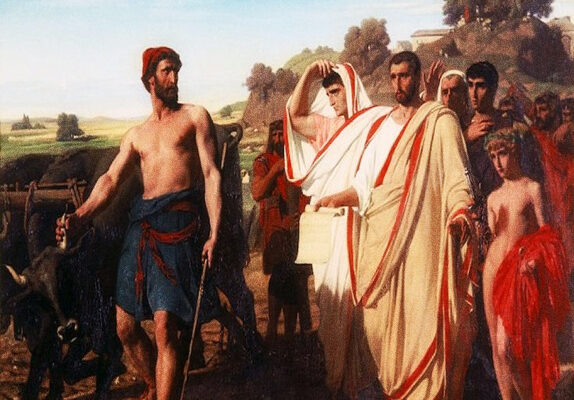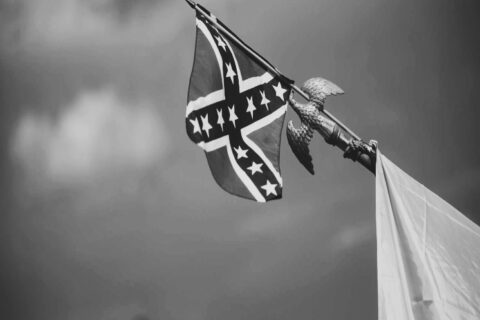I listened to an interesting podcast by The Distributist. He details a lot of things and much of it is watching him collect thoughts and collate them into something more useful. I’ll summarize the more useful parts, as I understand them.
I forget where I first heard the distinction, but man falls into one of three categories: warrior, farmer, or priest. Christ, of course, fulfills all three. David, The Distributist, references these three classes in his analysis of the works of Abd al-Rahman Ibn Khaldun. He defines them as Nomads, Kulaks, and Troubadours. For better reference, we’ll call them warriors, farmers, and priests.
The warrior specializes in asset-denial to the enemy. He lives off the spoils of raid and plunder. But it’s easy for him to get burned out. War requires energy. He can’t produce anything on his own. He’s reliant on the productivity of his enemy. This is his secondary vice. His primary vice comes from his lack of purpose without an oppositional force. A knight without a dragon to fight is no knight. More erudite scholars than I have speculated that it was peace that destroyed Camelot. Less erudite scholars than I have observed that it was peace that destroyed Rome. The Pax Romana was a prelude to the collapse, just as the Pax Americana surely sealed the fate of this nation, but that’s another story for another time. One could accurately describe them as parasitic, although parasitic off the enemy.
The farmer is something more familiar to most of us. They live lives of seclusion and stability. They don’t care what happens in Rome. What they care about functions around the turning of seasons and the implications of the weather. These people generate wealth. The wealth produced ends up in the hands of the enemy, which is raided by the warriors, and returned, in a pittance, to the men who created it. The farmer specializes in asset generation. This is the story of the Cossacks and their attempt to protect the poor farmers from cruel nobles and Jewish loaners. They could return only a fraction of that which was made. This is the American middle and working classes. If you’re reading this, you’re almost certainly one of them. You keep your head down and do what you have to, so that the people you care about can continue to live. God loves farmers, for farming is akin to gardening, which is what He designed as our primordial vocation. Work functions as both man’s curse and man’s blessing. The farmer is deeply rooted to his land and his work. He values the traditions of his home, and he has a sense of home. The warrior wanders. The farmer abides.
The final caste is the priest. The priest creates culture, for wherever there is culture, there is a cult. He practices asset-denial to the enemy while also practicing asset-generation. The plowman plows better with a song in his heart that inspires him. The warrior fights harder with the songs of his forebearers to encourage him and the hope that songs of him will be sung. The priestly caste also encompasses bards and other “creatives” (I hate to use the term) which inspire better things in people. The priest longs for the death of the enemy and does all he can to encourage the other two classes. He does this through recalling the culture of the past and creating a new and better culture in the present (this is difficult in our age). His greatest danger is in spending too long gazing into the abyss. As we all know, the abyss stares back. He will experience temptation. Temptation starts with small compromises which, in turn, become larger ones. In some ways, he’s in more direct contact with the enemy than the warrior is. One can only maintain irony (in the literal sense) with an intense will, and the will is finite. In a sense, the priest animates the other two and gives them a purpose beyond vanquishing your enemies and seeing the harvest’s yield.
The best and most healthy thing for us is to be aware of these facets. Just like we are made in the image of God, no man is wholly warrior, farmer, or priest. We need to learn to practice all of these elements in our lives and to pursue them when granted opportunities. We’ll always fall into one category more than another, but we should strive to understand and practice the other aspects. Never miss an opportunity to contest the enemy, cherish the work that you do and the people for whom you do it for, and strive to describe the things that encourage you to do these things.






The three roles are an ancient Indo-European classification dating back some 5,000 years, or so. The three stripes on most Indo-European flags represent the three classes. The Hindu Vedas describe them.
There’s another class that usually gets omitted from the three categories. And it’s the most dominant: the Liars. There are others.